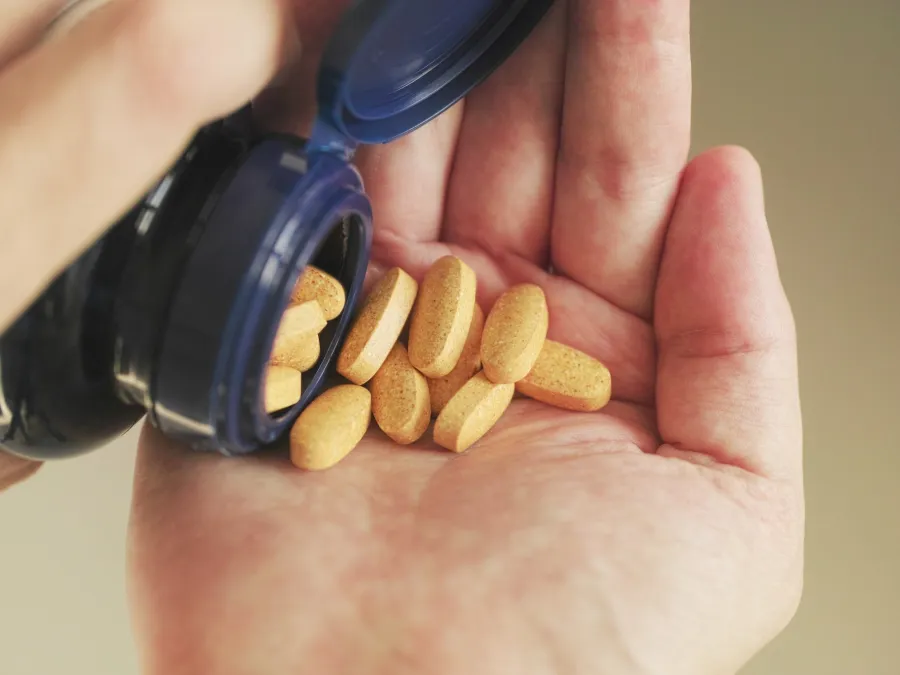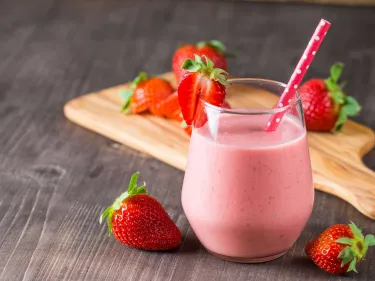From multivitamins to protein powders and sleep aids, people are reaching for supplements as an ‘insurance policy’ or in the hope of boosting their health.
Research shows around 43% of Australian adults now taking some form of dietary supplement, which is up from 29% in 2013. This rise is likely due to the increased range and availability of supplements in both supermarkets and online, plus the abundance of marketing claims promising quick fixes for many health-related concerns.
Among these, vitamin B6 has gained attention for its role in supporting brain function, mood regulation, and immune health. But is more always better?
Let’s explore why vitamin B6 toxicity is on the increase, and why reading supplement labels and seeking professional guidance matters.
What is Vitamin B6 and where do we get it from?
Vitamin B6 is a water-soluble vitamin essential for protein metabolism, cognitive development, immune function, and haemoglobin production.
You can find vitamin B6 naturally in a wide variety of foods, such as poultry, fish, meat, chickpeas, starchy vegetables (like potatoes), and non-citrus fruits (such as bananas). It’s also added to some fortified products like breakfast cereals. For most people, a balanced diet provides more than enough B6 to meet the recommendations of 1.3-1.7mg per day.
Vitamin B6 is also commonly found in dietary supplements such as multivitamins, B-complex vitamins, stand-alone vitamin B6 products and is added to some magnesium supplements.
Vitamin B6 toxicity
Vitamin B6 is a water-soluble vitamin, meaning excess amounts are usually excreted in urine. However, unlike other water-soluble vitamins, B6 can linger in the bloodstream for 15-20 days allowing toxic levels to build up over time.
While it's unlikely to experience adverse effects from vitamin B6 obtained solely through food, excessive intake from supplements can lead to toxicity. For most adults, the recommended upper limit for B6 is 50mg per day, but people can be taking this amount or more on a regular basis and might not realise.
What’s important to be aware of is that B6 can accumulate gradually from multiple sources. A multivitamin, magnesium supplement, a sleep aid and energy drinks or vitamin waters might each contain B6, adding up to toxic levels before you know it.
Supplement labels can often be misleading or hard to understand, where ingredients like ‘pyridoxine hydrochloride’ may not be recognised as forms of vitamin B6. This can make it easy to unknowingly exceed safe limits, especially if you’re taking multiple products at once. Always check the nutrition labels and monitor your total daily intake.
Keep an eye out – Vitamin B6 can be listed as:
- Vitamin B6
- Pyridoxine hydrochloride
- Pyridoxal-5-phosphate
- Part of a “proprietary blend”
Some symptoms of B6 toxicity might include:
- Numbness and tingling in the hands and feet
- Loss of coordination
- Fatigue and brain fog
- Peripheral neuropathy (nerve damage in hands, feet, and legs)
- Photosensitivity
- Skin lesions (sunburn-like rashes without sun exposure)
- Reduced pain sensitivity
Food first: a safer, smarter approach
Most people can meet their daily vitamin and mineral needs by eating a balanced diet rich in whole foods and avoid the risks associated with high-dose supplements. Whole foods not only provide vitamins and minerals but also fibre, antioxidants, and many other nutrients that support overall health.
Supplements can be helpful, but they should never replace the foundation of good nutrition: real food.
If you’re considering a supplement or experiencing unexplained symptoms like tingling or fatigue, talk to your GP. A GP or a dietitian can help you:
- Assess your actual nutrient needs
- Identify potential interactions with medications
- Avoid unnecessary or potentially harmful supplementation
If you're unsure about your nutrient intake, try the Healthy Eating Quiz on our No Money No Time website, which will give you a personalised dietary assessment and actionable feedback in under 10 minutes.
Want to learn more?
- Listen to the full Nutrition Science Bites episode “Could you have vitamin B6 overload? What are the signs and symptoms?”
- Check out some of our other articles on













